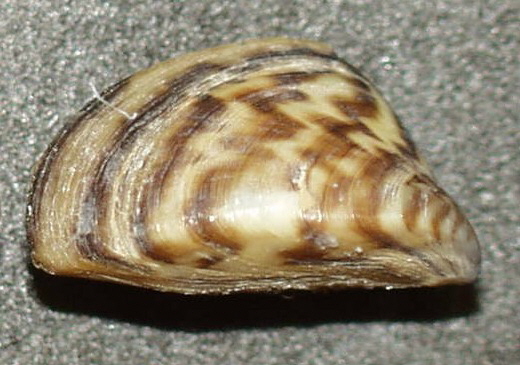Every two months, Christopher Churchill, a U.S. Geological Survey biologist, scuba dives in Ray Roberts Lake, northwest of Dallas, to monitor the growth rates of zebra mussels, which have wreaked havoc on several Texas lakes and rivers.
“A year ago, it was hard to find just one zebra mussel,” Churchill said. “They’re everywhere now.”
Churchill’s assignment follows the 2009 discovery of the non-native zebra mussels in North Texas’ Lake Texoma. That year, the area lost 28 percent of its water supply when local water officials halted pumping water from the lake for fear of spreading the mussels through a pipeline that pumped water to a second reservoir, which is connected to a water treatment facility.
Officials embarked on a $300 million project to build infrastructure that would pump the water from the infested reservoir directly to the treatment facility, eliminating the possibility of infecting the second reservoir.
One way zebra mussels are introduced to new waterways is via boats that are not cleaned properly. Legislation passed this spring aims to increase awareness among Texas boaters about how to prevent the spread of the mussels and other invasive species.
To be certified to use their boats in Texas, individuals must take a Texas Parks and Wildlife Department boating education course. The department certifies about 12,000 individuals a year. The new legislation adds test questions on preventing the spread of invasive species to existing courses.
“If we can educate boaters, fisherman and those out with water craft then they can be our real front line defense against the spread and introduction of invasive species into new water bodies,” said Ross Melinchuk, deputy executive director of natural resources for the department. In addition to the courses, officials hope signs along lakes and reminders painted on boat docks will help decrease the spread of invasive species through boats.
I think the legislation in question is HB1241, but I can’t swear to it. Eradicating invasive species like the zebra mussel, or just holding them in check, will mostly involve ways to kill them or prevent them from breeding effectively. How to do that is a very difficult question, since you don’t want to introduce new and potentially worse problems into the ecosystem. Steps like this are fairly small-bore, but they can’t hurt and they are necessary to help keep the problem from getting any worse than it already is. I wish the TPWD good luck with this effort.


I offer this: an annual Zebra Mussel Massacre – it wouldn’t do too much to actually reduce their numbers, but it would provide a fun cook-off and could raise awareness.